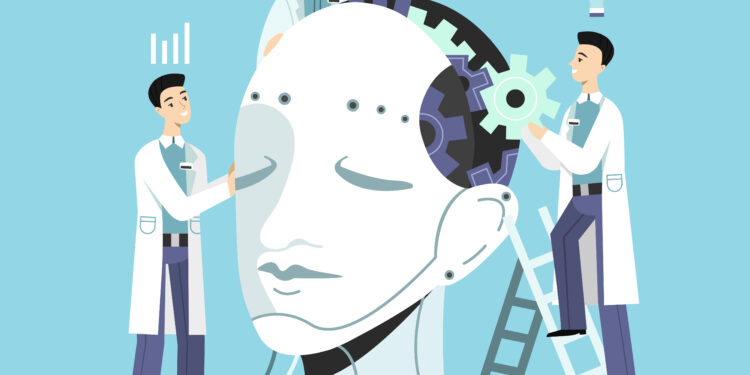AI innovations like virtual helpers, chatbots, self-driving cars, and automated manufacturing are quickly changing the way we live. Taking advantage of the fact that AI has the ability to change science, the country’s top science and technology experts have come up with a plan for the United States to speed up its progress by improving its AI and big data analysis skills.
“AI for Science, Energy, and Security” is a plan for how the U.S. Department of Energy (DOE) can use its strengths in world-leading high-performance computer systems and data infrastructure to do more work in the scientific use of AI.
The report is the result of a set of workshops that took place in 2022. The DOE’s Office of Science and the National Nuclear Security Administration led the workshops. Over 1,000 scientists, engineers, and staff from DOE labs, universities, and technology companies came to the sessions to talk about the possibilities and challenges of scientific AI, which is growing quickly.
The study names six AI capabilities and talks about how they could change DOE’s programmes. These include everything from controlling complicated systems like power grids to building basic models like the big language models that make ChatGPT and other generative AI programmes work. The study also describes the cross-cutting technologies that are needed to make these changes possible.
“Advances in AI could drastically change how we pose and solve scientific problems,” said Rick Stevens, associate laboratory director of computing, environment, and life science at DOE’s Argonne National Laboratory, who helped organise the workshops and write the report. “AI innovations have so much untapped potential to drive new scientific discoveries and speed up the pace of those findings. DOE is the natural leader when it comes to making AI that can be trusted and is used in a responsible way to help with the energy shift and nuclear deterrence efforts of our country.
The report talks about “grand challenges” in science where AI is a big part of making progress towards an answer. Some of these are better models of the climate, the search for new quantum materials, new plans for nuclear reactors that produce clean energy, and more.
The report says that DOE is in a great position to keep the United States at the top of the world in science, energy, and security. DOE runs the world’s most powerful supercomputers, such as the new exascale systems Frontier, Aurora, and El Capitan. It also has the world’s biggest collection of experimental facilities and employs more than 50,000 people at its 17 national laboratories.
Six DOE national laboratories—Argonne, Lawrence Berkeley National Laboratory, Lawrence Livermore National Laboratory, Los Alamos National Laboratory, Oak Ridge National Laboratory, and Sandia National Laboratories—led the AI workshop series and the study that came out of it.
A Visionary Study Lays Out An Ambitious Plan To Use AI To Help Scientists Find New Things
Editors Corner
Recommended News
Google: AI From All Perspectives
Alphabet subsidiary Google may have been slower than OpenAI to make its AI capabilities publicly available in the past, but...
US And UK Doctors Think Pfizer Is Setting The Standard For AI And Machine Learning In Drug Discovery
New research from Bryter, which involved over 200 doctors from the US and the UK, including neurologists, hematologists, and oncologists,...
An Agreement Is Signed By MEA, MeitY, And CSC To Offer E-Migration Services Via Shared Service Centers
Three government agencies joined forces to form a synergy in order to deliver eMigrate services through Common Services Centers (CSCs)...
PR Handbook For AI Startups: How To Avoid Traps And Succeed In A Crowded Field
The advent of artificial intelligence has significantly changed the landscape of entrepreneurship. The figures say it all. Global AI startups...
Related Posts

IndiaNext Brings you latest news on artificial intelligence, Healthcare & Energy sector from all top sources in India and across the world.
Recent Posts
© India Next. All Rights Reserved. | Privacy Policy
|
Web Design & Digital Marketing by Heeren Tanna








